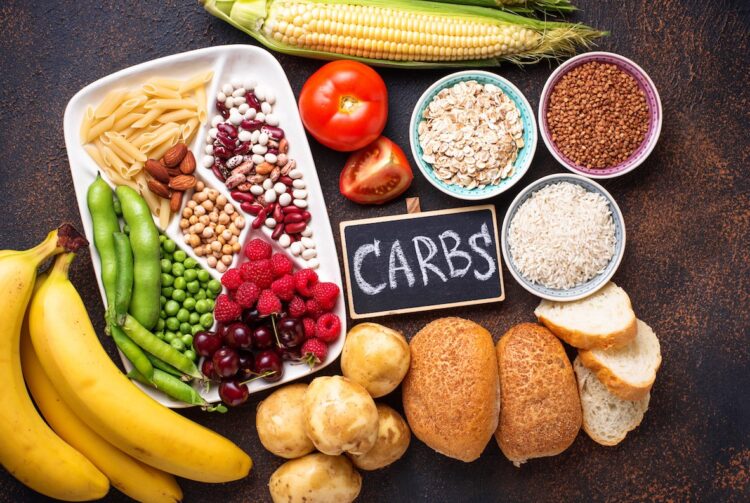Health is an important aspect of everyone’s life. We all want to be as healthy as possible. However, with so much information readily available, it can be difficult to know what to believe. Unfortunately, not all information is accurate, and many health myths that could cause more harm than good are going around.
Nowadays, everyone can give their opinion on what is considered healthy, from influencers to celebrities to the general population, creating confusion on what is to be trusted. In this article, we’ll look at seven common health myths you should be aware of.
Myth 1 ─ Gluten-Free Foods Are Better Than Those With Gluten
Many people believe that gluten-free foods are automatically healthier than their gluten-containing counterparts. However, this is not necessarily true. Gluten is a binding protein found in certain cereals like wheat, rye, barley, and others, which gives bakery products their characteristic spongy texture.
To mimic this effect, many gluten-free products are high in sugar, fat, and calories and offer no nutritional benefits.
Gluten-free foods are only really beneficial to individuals with Celiac Disease or any other form of gluten sensitivity, who can’t tolerate this protein. Humans with this type of sensitivity will notice they get bloated, dizzy, and have headaches, diarrhea, or abdominal pain when eating gluten-containing foods. If this is not the case, don’t worry; you don’t have to cut out gluten from your life.
Myth 2 ─ Carbs are Bad For You

Carbs have a bad reputation, with many believing they are the enemy of weight loss and health. However, this is simply not true. Carbs are essential to a balanced diet and are the main energy provider for the body to perform daily tasks.
Some carbohydrates are also an important fiber source, which is vital for healthy digestion, healthy cholesterol levels, and the gut microbiome. The key is to choose the right types of carbs, such as whole grains, fruits, and vegetables, rather than processed and refined carbs, like white bread and sugary snacks.
These refined carbs are quickly broken down into sugar, leading to spikes in blood sugar levels, inflammation, weight gain, and other health problems.
Myth 3 ─ You Only Need A Blood Test When You’re Sick
Many people believe that the only time you need to get your blood tested is when you feel unwell. However, this is not true. Routine blood tests, such as a lipid profile, hormone testing, and metabolic profiles, are important to maintaining good health and should be done at least once a year.
These can help to identify any underlying health issues early on before they become serious and help your doctor to diagnose and treat any problems as soon as possible. So, even if you feel healthy, find blood work near you and get regular blood tests as part of your routine health check-up.
Myth 4 ─ More Vitamins and Supplements Equals Better Health

Many people believe that taking more vitamins and supplements is a good way to keep your health in check, but this is not the case. Overdosing on certain vitamins can be harmful, and taking too many supplements can also interfere with the absorption of other nutrients.
It’s always best to get your vitamins and minerals from a balanced diet that includes mostly whole foods, and if you do need to take supplements, it’s important to speak to a doctor or registered dietitian first to understand which ones to take and in what quantities.
Myth 5 ─ Drinking Green Tea Will Help You Slim Down
Green tea has been shown to have numerous health properties, such as antioxidants which aid in slowing the aging process, and caffeine, which can help you feel energized and perform better. It is also believed that green tea can increase your metabolism and aid in weight loss. This is why many people fill up their water bottles with green tea bags or sip on hot green tea all day in an effort to lose weight.
However, weight loss cannot be achieved by focusing on just one food item, as it’s the result of your overall daily diet. Besides, green tea has also been proven to be toxic to your liver when consumed in large amounts, so as with everything, moderation is key.
Myth 6 ─ The More You Sweat, The More Fat You Burn

Sweating is a natural way for the body to regulate its temperature, and many people believe that the more you sweat, the more calories and fat you burn. You might have even seen people going around with their torsos wrapped in plastic thinking that the more their bellies sweat, the more fat they will lose in this area.
This is not the case. Sweating is not an accurate indicator of how many calories you are burning or if you’re burning pure fat. The amount you sweat can vary based on several factors, such as the climate, activity, and hydration levels. If you’re trying to lose weight, it’s best to focus on other factors, such as eating a healthy, low-calorie diet and engaging in regular exercise.
Consistency will get you better results than trying to sweat as much as possible in sporadic workouts.
Myth 7 ─ Drinking Fruit Juice is Healthy As Long As You Don’t Add Sugar
Many people believe drinking fruit juice is just as good as eating whole fruits if you don’t add any more sugar to it, but this is not the case. Fruit juice has as much sugar as sodas or other sugary beverages and can lead to spikes in blood sugar levels, weight gain, and other health problems.
Whole fruits, on the other hand, have fiber which acts as a buffer for sugar in fruits, lowering its absorption rate and reducing sugar spikes. Eat your fruit whole to receive all the beneficial nutrients these foods offer without its sugar-spiking effects.
Sum Up
In conclusion, it’s important to be aware of the many health myths circulating, as they can cause harm to your health and prevent you from making informed decisions about your well-being. Always be skeptical of health claims, especially those made by individuals with no professional backgrounds in the field.
Remember that all humans are different and should follow personalized instructions to optimize their health. If you’re unsure about something, speak to a doctor or registered dietitian for advice. Doing so can ensure that you’re making informed decisions about your health and taking the necessary steps to stay healthy and happy for years to come.
 Hi Boox Popular Magazine 2024
Hi Boox Popular Magazine 2024



